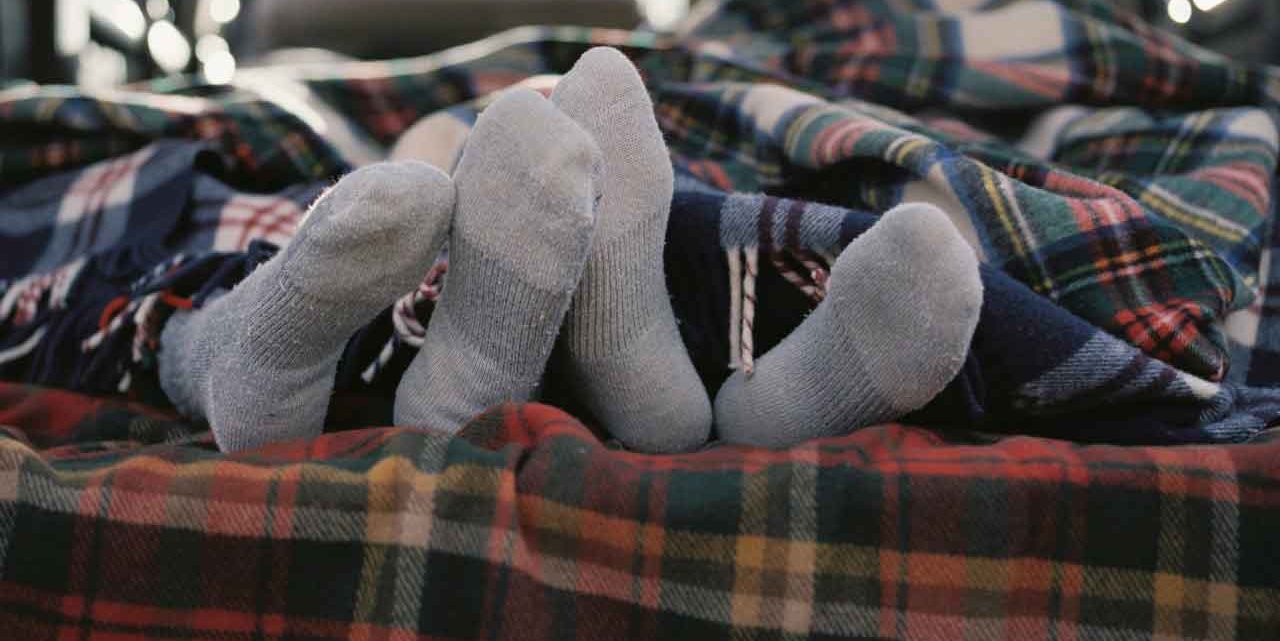How to Get Sleep During Winter

We discuss some common winter sleep disruptors, and how to overcome them and get plenty of sleep during the winter months.
Winter is particularly taxing on your immune system. Cold and flu viruses abound at this time of year. One way to strengthen your body’s defenses against these bugs is to get a good night’s sleep.
Sleep deprivation can have a powerful effect on immunity. A study from Carnegie Mellon University found that people who sleep six hours or fewer a night are more than four times more likely to catch a cold than those who sleep more than seven hours nightly. “It didn’t matter how old people were, their stress levels, their race, education or income. It didn’t matter if they were a smoker,” said lead author Aric Prather, PhD, assistant professor of psychiatry at the University of California, San Francisco. “With all those things taken into account, statistically sleep still carried the day and was an overwhelmingly strong predictor for susceptibility to the cold virus.”
Though our sleep needs don’t vary much throughout the year from the recommended seven to nine hours nightly, during winter we tend to crave sleep more. A reduction in sunlight makes the brain release more of the hormone melatonin, which primes the body for bedtime. Yet a number of factors can prevent us from getting the quantity — or quality of sleep we need.
Here are some common winter sleep disruptors, and how to overcome them.
A hot bedroom. When the temperature outside dips, your first response may be to pump up the thermostat and pile more blankets on your bed. Getting too warm can be counterproductive, making it harder to fall asleep. In fact, researchers have linked insomnia with a higher body temperature at night. The other temperature extreme isn’t restful, either. If your room is cold enough to make you shiver, you’ll never be able to relax enough to sleep. Experts say the ideal sleeping temperature is around 65 degrees Fahrenheit.
Disruption in your sleep/wake cycles. Shorter days reduce your light exposure and throw off your body’s natural sleep/wake rhythms. As a result, you might be unusually sleepy during the day and wide awake at night. To help your body slip back into a more normal rhythm, increase your sunlight exposure in the morning. Throw open the blinds, go outside for a walk (if weather allows), or sit in front of a bright light box for 30 minutes or more each morning.
Dry air. Cold weather sucks moisture out of the air — and out of your nasal passages and mouth. When your throat feels scratchy and raw, it’s hard to sleep. Recirculating indoor air can also make you more susceptible to colds and other upper respiratory infections, which make it harder to sleep. To increase moisture in the air, turn on a humidifier. Try to keep the humidity in your home set at around 50 percent. Drinking a glass of water before bed can prevent a dry throat — just don’t drink so much that you have to get up in the middle of the night to use the bathroom.
Too much down time. As cold temperatures set in and snow falls, your desire to drive to the gym can also plummet. A lack of activity isn’t just bad for your weight and muscle tone — it can also impact your sleep. One study found that getting the recommended 150 minutes of moderate to vigorous activity each week improves sleep quality, and helps people feel more alert during the day. “It may be easier when you are tired to skip the workout and go to sleep, but it may be beneficial for your long-term health to make the hard decision and get your exercise,” said study author Brad Cardinal, PhD, a professor of exercise science at Oregon State University. “The scientific evidence is encouraging as regular physical activity may serve as a non-pharmaceutical alternative to improve sleep.”
Updated:
March 30, 2020
Reviewed By:
Janet O’Dell, RN